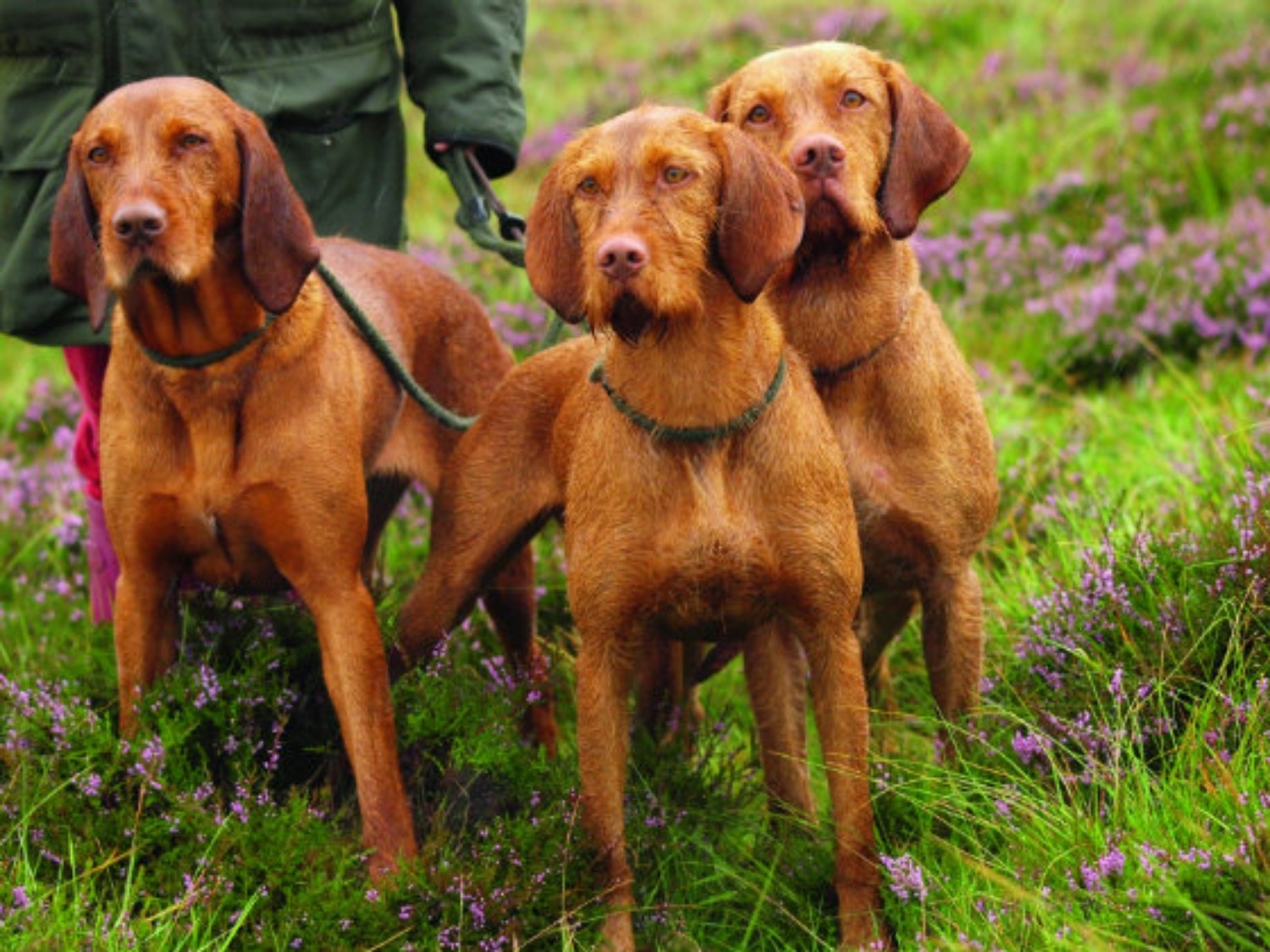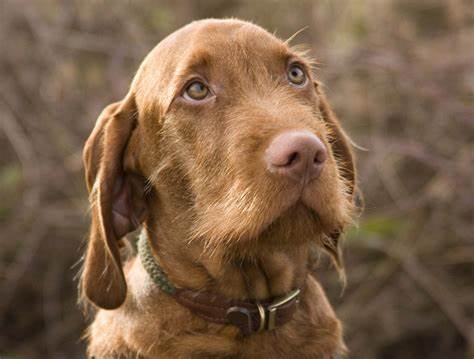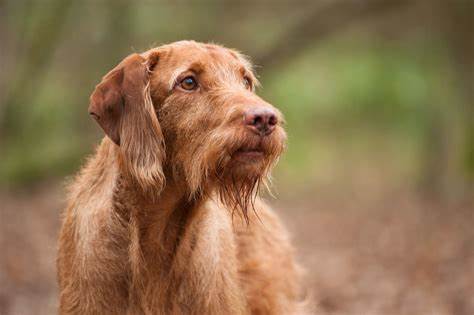
The Wirehaired Vizsla is a relatively modern hunting breed originating in Hungary during the 1930s. It was developed by crossing the smooth-coated Hungarian Vizsla with the German Wirehaired Pointer, in an effort to create a dog that maintained the Vizsla’s keen scenting ability and affectionate temperament, but with a denser, weather-resistant coat better suited to rough terrain and harsh climates.
Hungarian hunters, particularly László Gresznarik, spearheaded the effort, seeking a versatile companion capable of pointing, retrieving, and tracking in forests, fields, and wetlands. Official breed recognition in Hungary was established in 1966, and the breed has gradually spread to Western Europe, North America, and beyond, appreciated by hunters and dog enthusiasts alike.
Although rarer than the smooth-coated Vizsla, the Wirehaired Vizsla is steadily growing in popularity among sporting dog enthusiasts and active families who admire its gentle nature, trainability, and distinctive appearance. The breed is recognized by major kennel clubs, including the American Kennel Club (AKC), and enjoys a dedicated following through breed-specific clubs and hunting circles worldwide.
The Wirehaired Vizsla is a medium to large, athletic dog with a balanced build and a signature harsh, wiry coat.
• Height: 21.5–25 inches (55–64 cm)
• Weight: 45–65 pounds (20–30 kg)
• Build: Lean, muscular, and slightly longer than tall
• Coat: Dense, wiry, and harsh with water-resistant undercoat; protective furnishings on face (eyebrows and beard)
• Color: Golden rust (standard Vizsla shade)
• Head: Clean-cut with pronounced eyebrows and bushy mustache
• Ears: Medium-length, rounded tips, hanging close to cheeks
• Eyes: Medium-sized, oval, in shades harmonizing with coat color
• Tail: Typically docked (where permitted); carried level or slightly elevated
The Wirehaired Vizsla is known for combining enthusiasm in the field with affection and gentleness at home.
• Versatile hunter: Excels in pointing, retrieving, and tracking on land and water
• Affectionate and loyal: Strong bond with family members
• Sensitive and gentle: Responds best to positive, encouraging training
• Energetic and driven: Thrives on daily exercise and mental stimulation
• Social and friendly: Generally good with children, other dogs, and even strangers (when socialized properly)

This breed is an excellent fit for:
• Hunters seeking a versatile, all-terrain sporting dog
• Active owners or families who enjoy outdoor adventures
• Homes that appreciate affectionate, people-oriented dogs
• Owners looking for a trainable, eager-to-please companion
It may not be ideal for:
• Sedentary households unable to meet exercise demands
• Owners who are unprepared for sensitive, people-focused dogs
• Those unwilling to provide daily grooming and coat maintenance
These athletic, intelligent dogs need structured care to thrive.
• Exercise: High; daily vigorous activity (running, hiking, field work, swimming)
• Training: Positive reinforcement; early obedience and socialization are essential
• Grooming: Weekly brushing; occasional hand-stripping of dead hairs; regular ear checks
• Living Environment: Best with a yard or rural setting; adaptable to suburban life with ample exercise
• Feeding: High-quality diet tailored to active, medium-to-large breeds
Generally healthy, but monitor for:
• Hip dysplasia
• Elbow dysplasia
• Eye conditions (entropion, ectropion, progressive retinal atrophy)
• Ear infections (due to floppy ears)
• Allergies and skin issues (less common)
Average lifespan is 12–14 years. Reputable breeders screen for genetic conditions.

• Smooth Vizsla: Sleeker, less rugged coat; otherwise similar temperament
• German Wirehaired Pointer: Larger and more independent; similar coat
• Wirehaired Pointing Griffon: Similar versatility and coat, slightly heavier build
If you desire a versatile hunting companion who doubles as a gentle, affectionate family dog — and you can provide ample activity and companionship — the Wirehaired Vizsla could be a perfect match.
Seek breeders committed to health, temperament, and working ability. Rescue organizations and breed clubs may occasionally have adoptable adults. United Pet Club supports owners with travel resources, hunting dog training guides, and customizable pet passports.